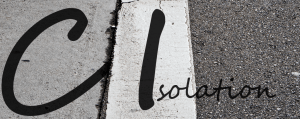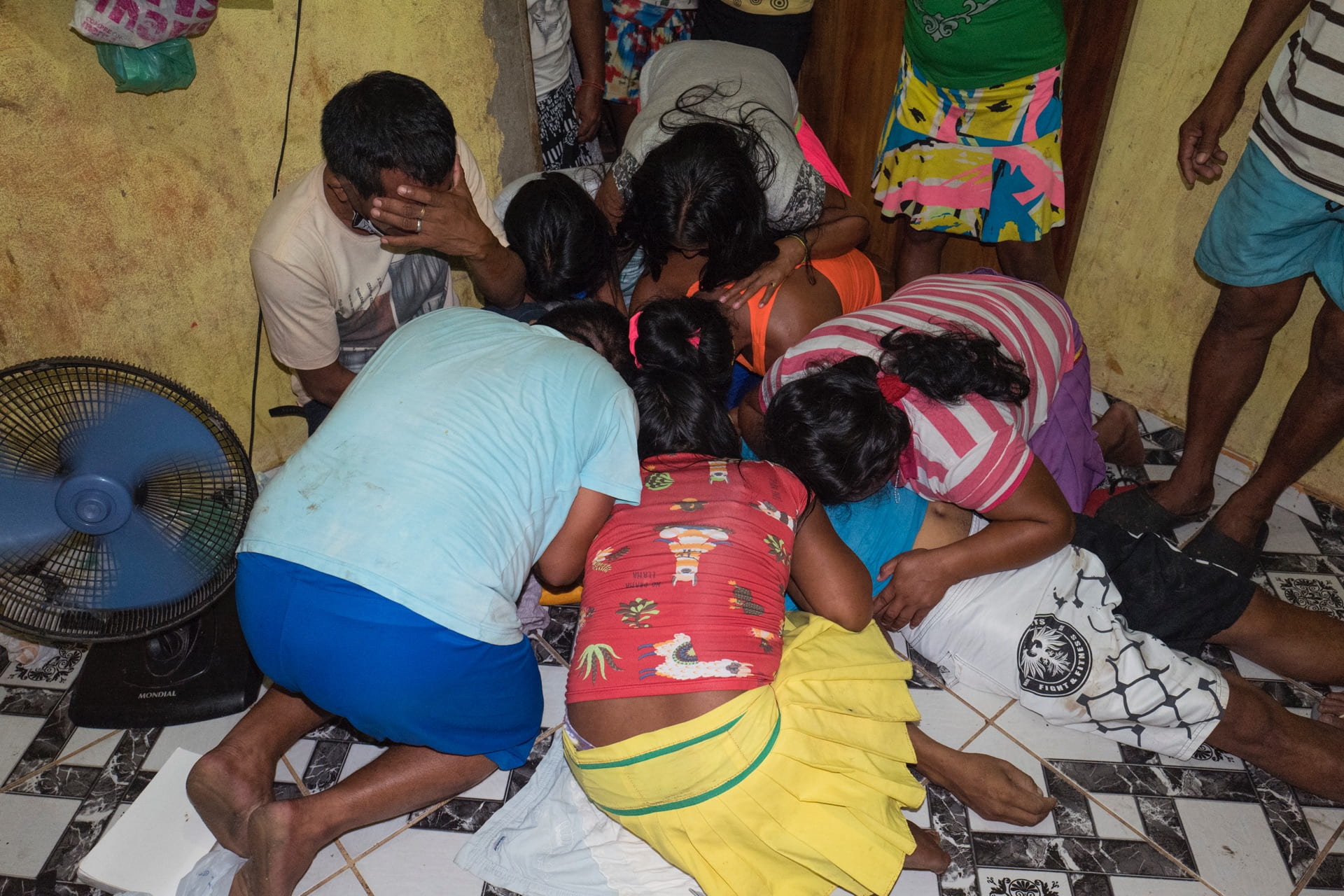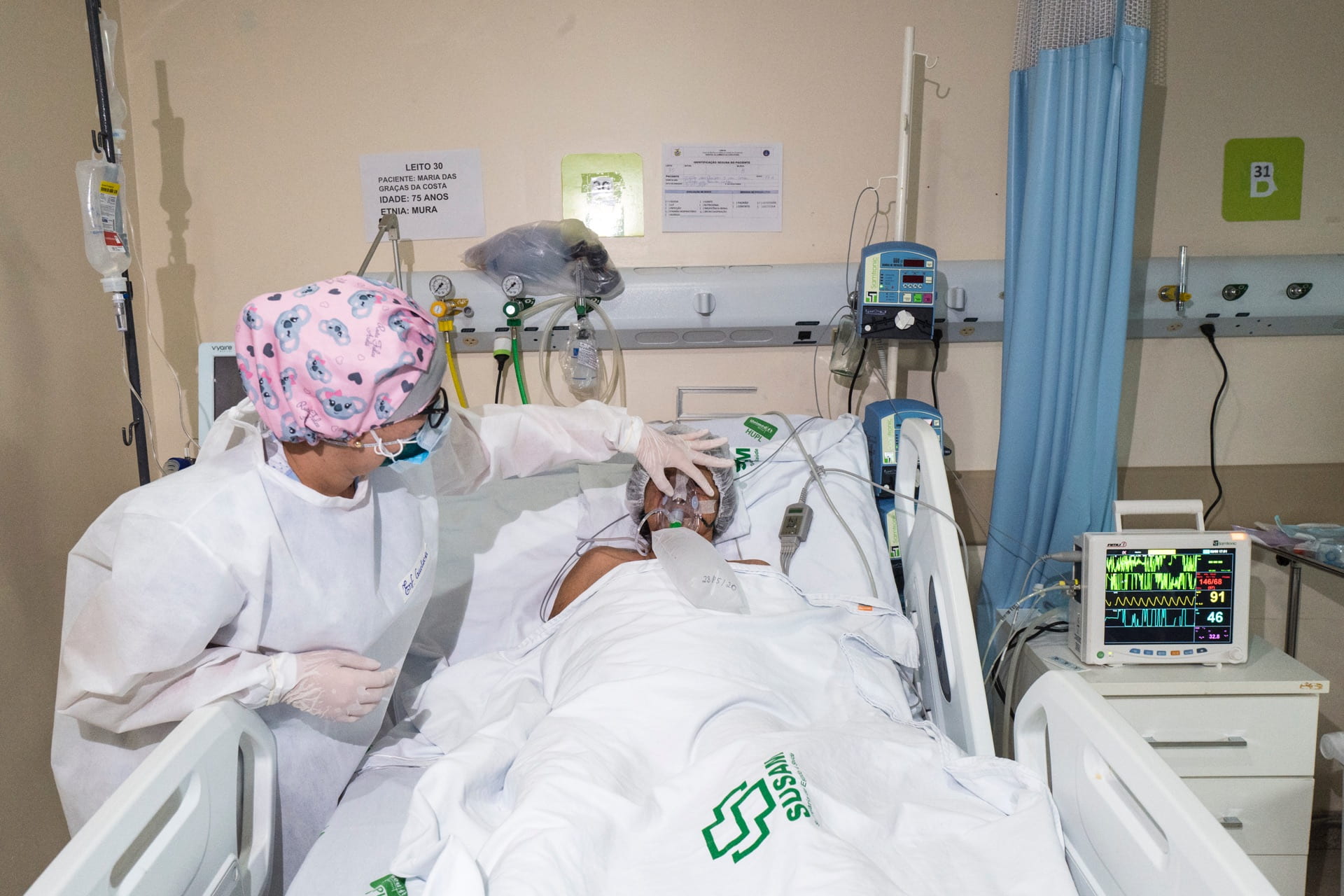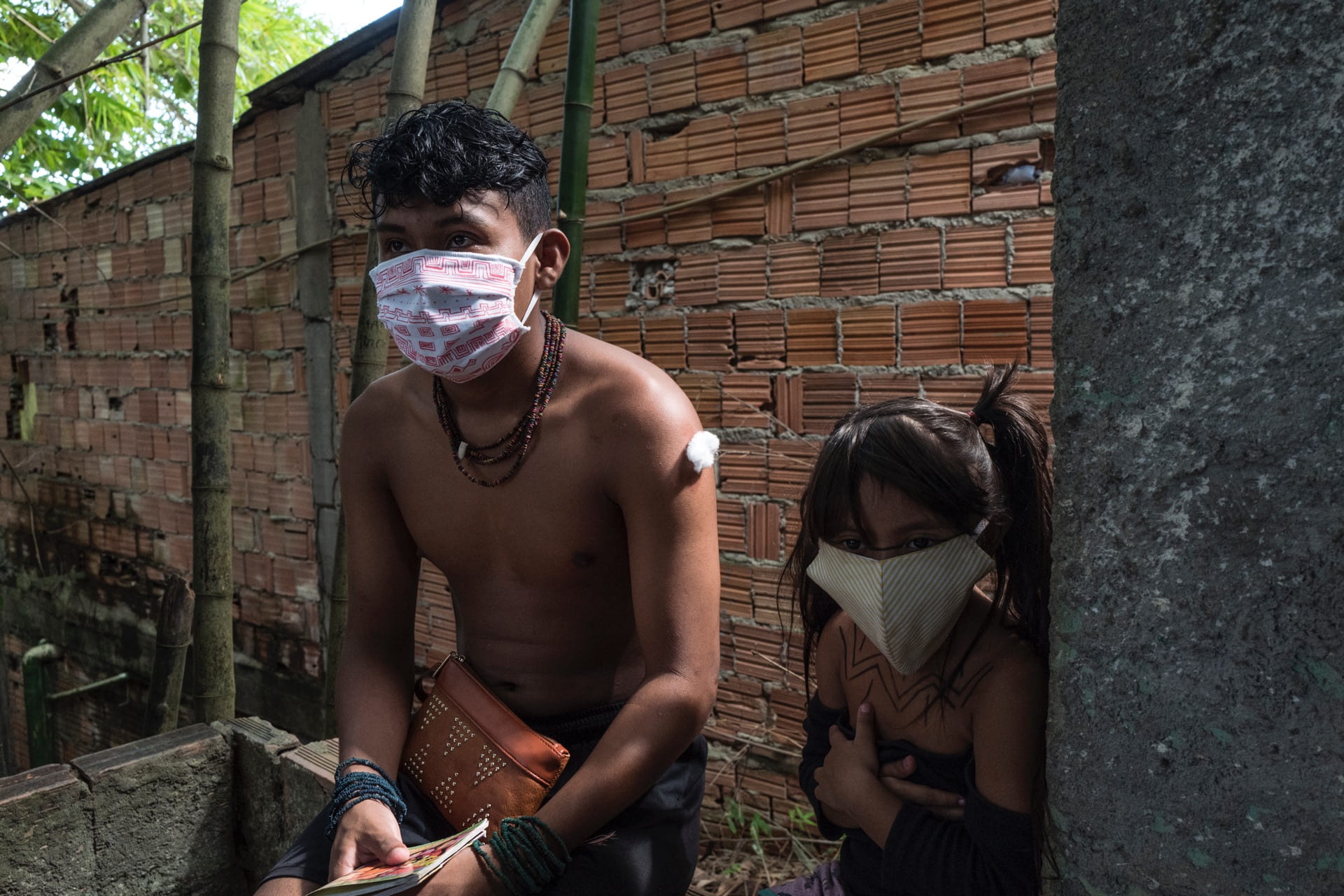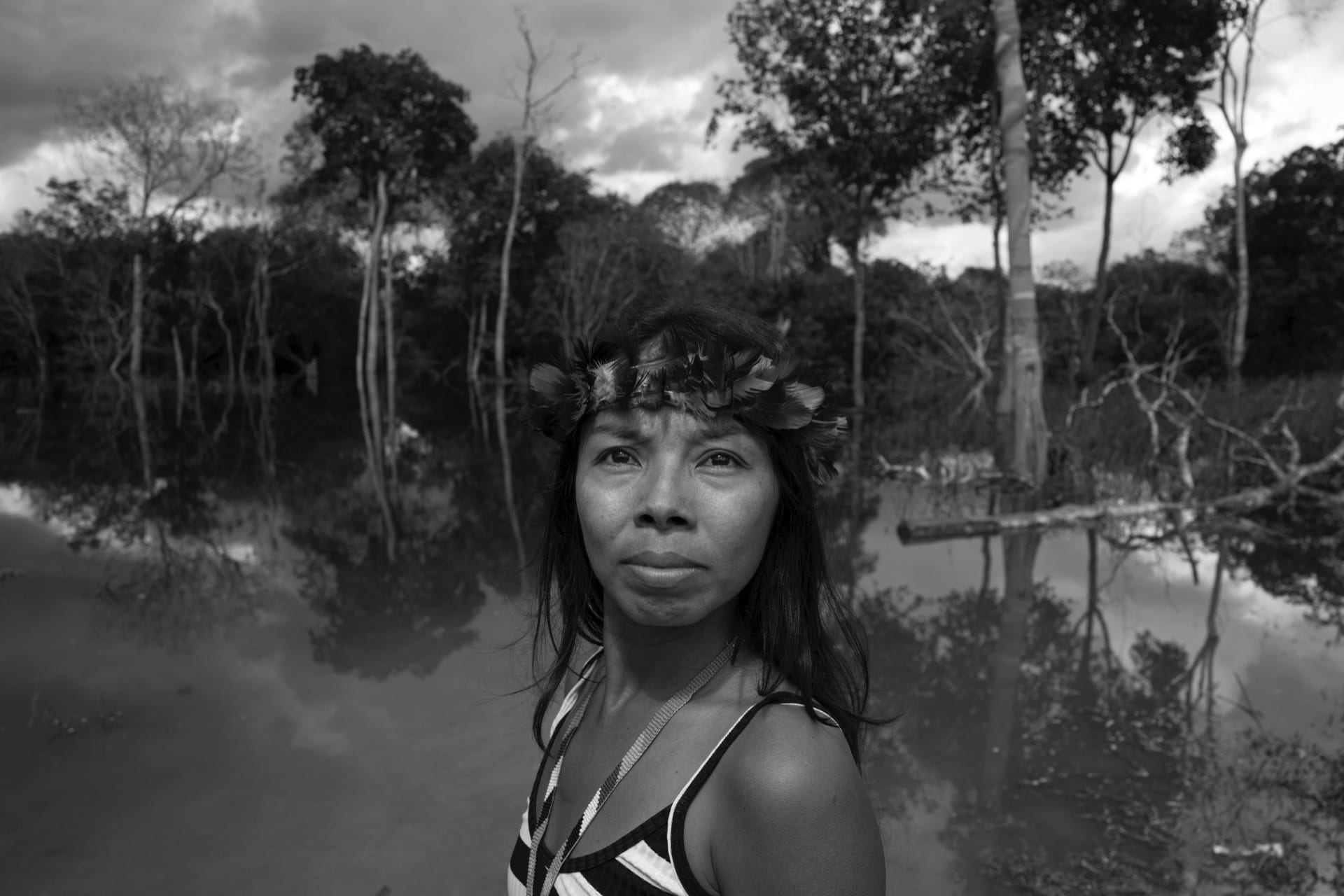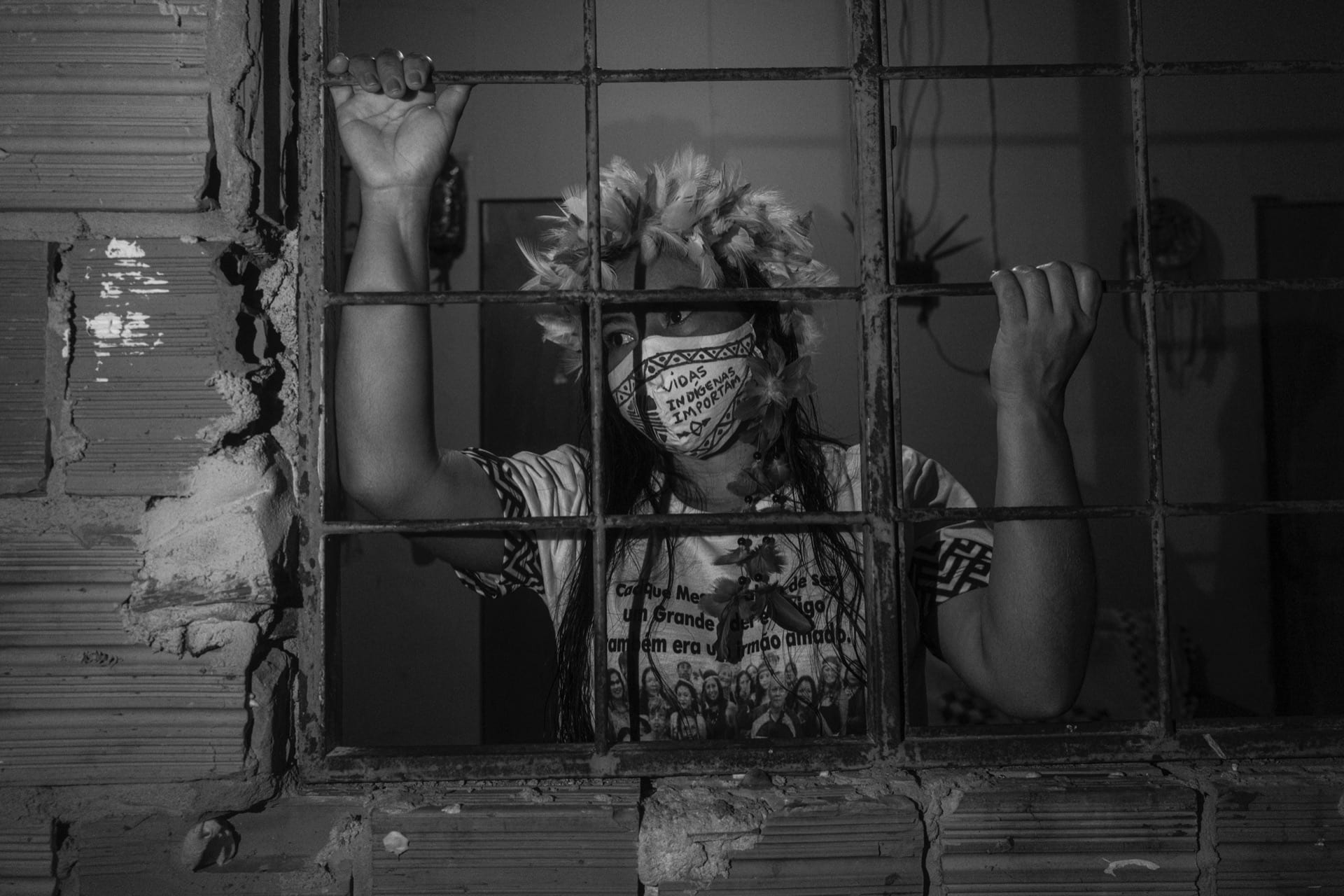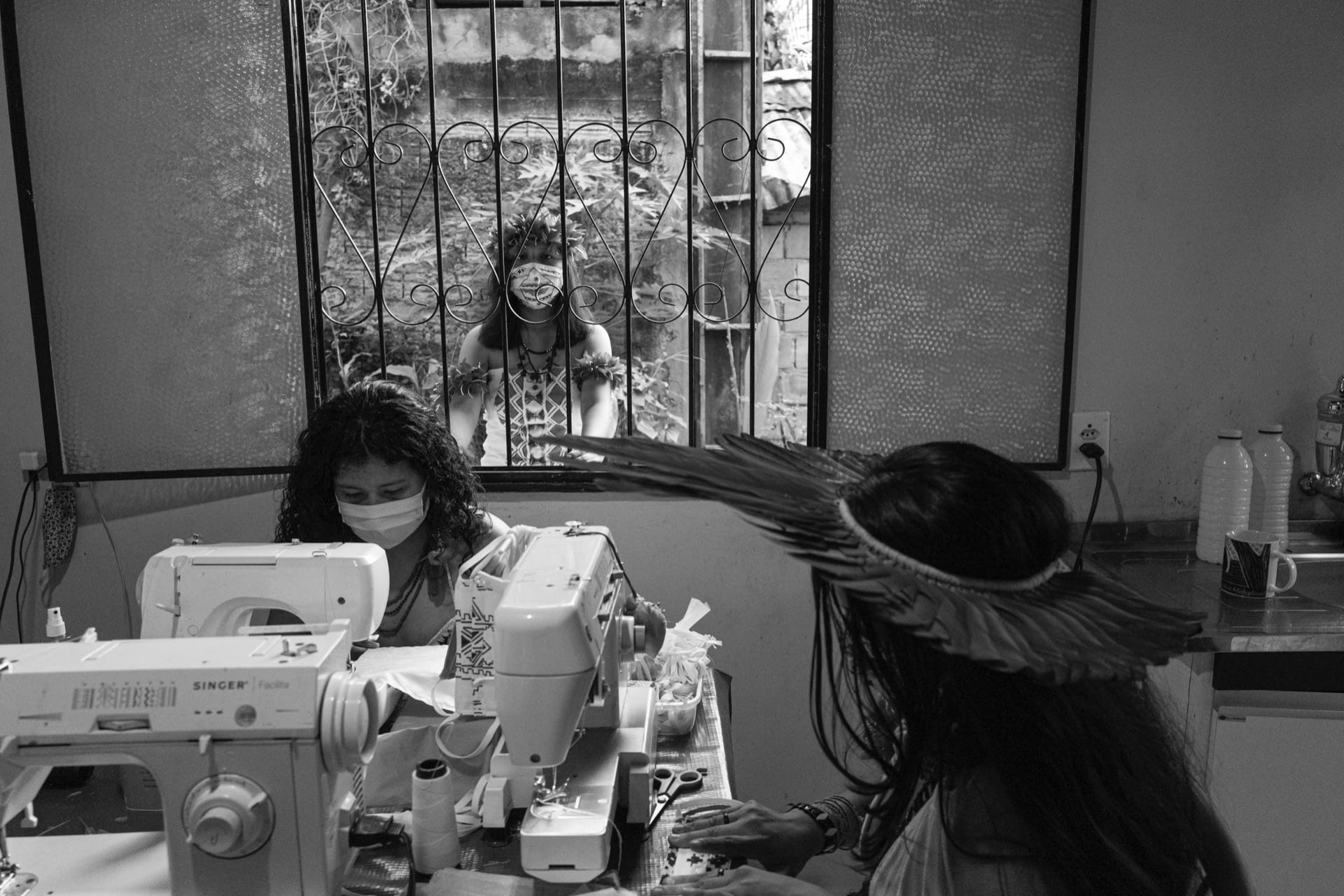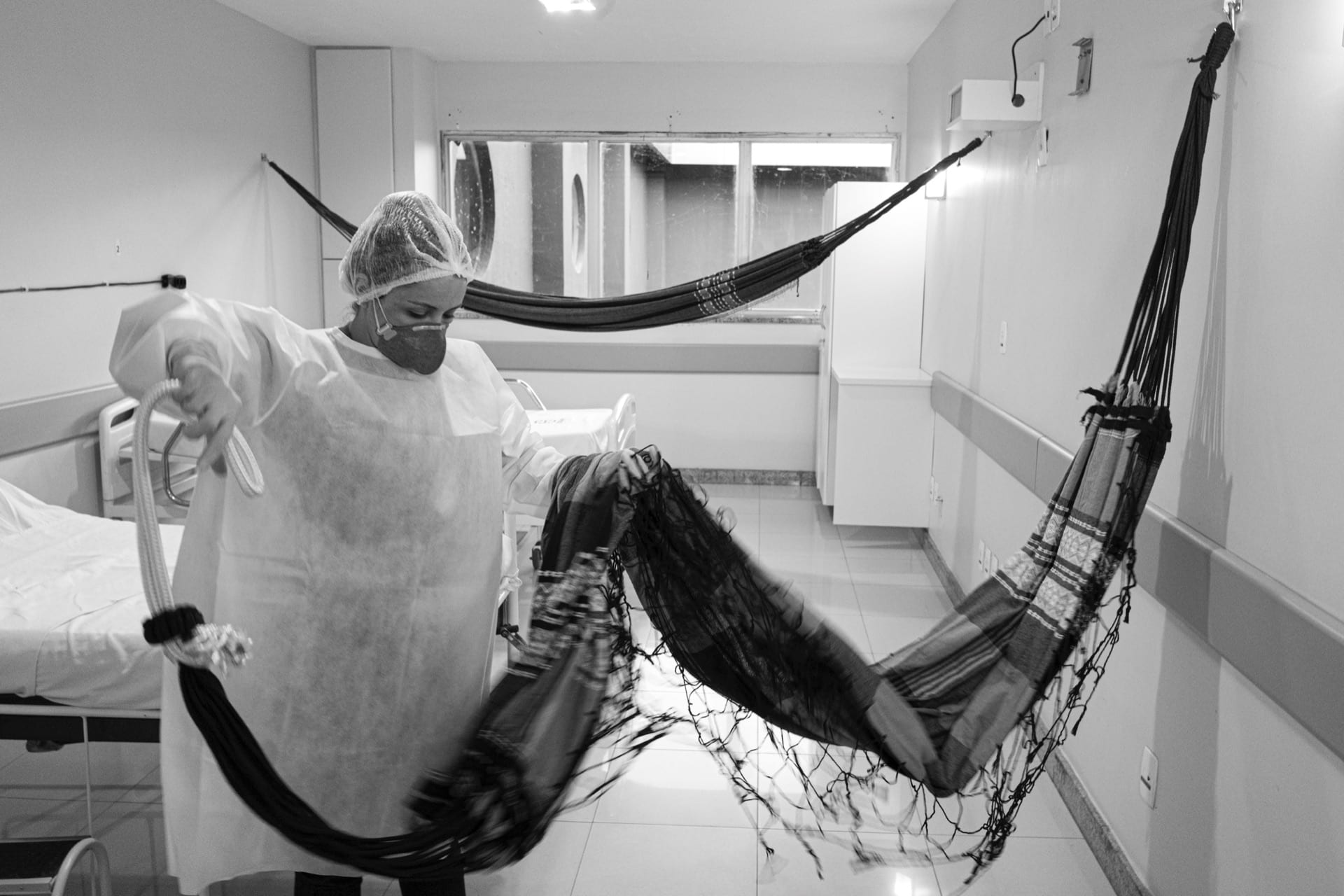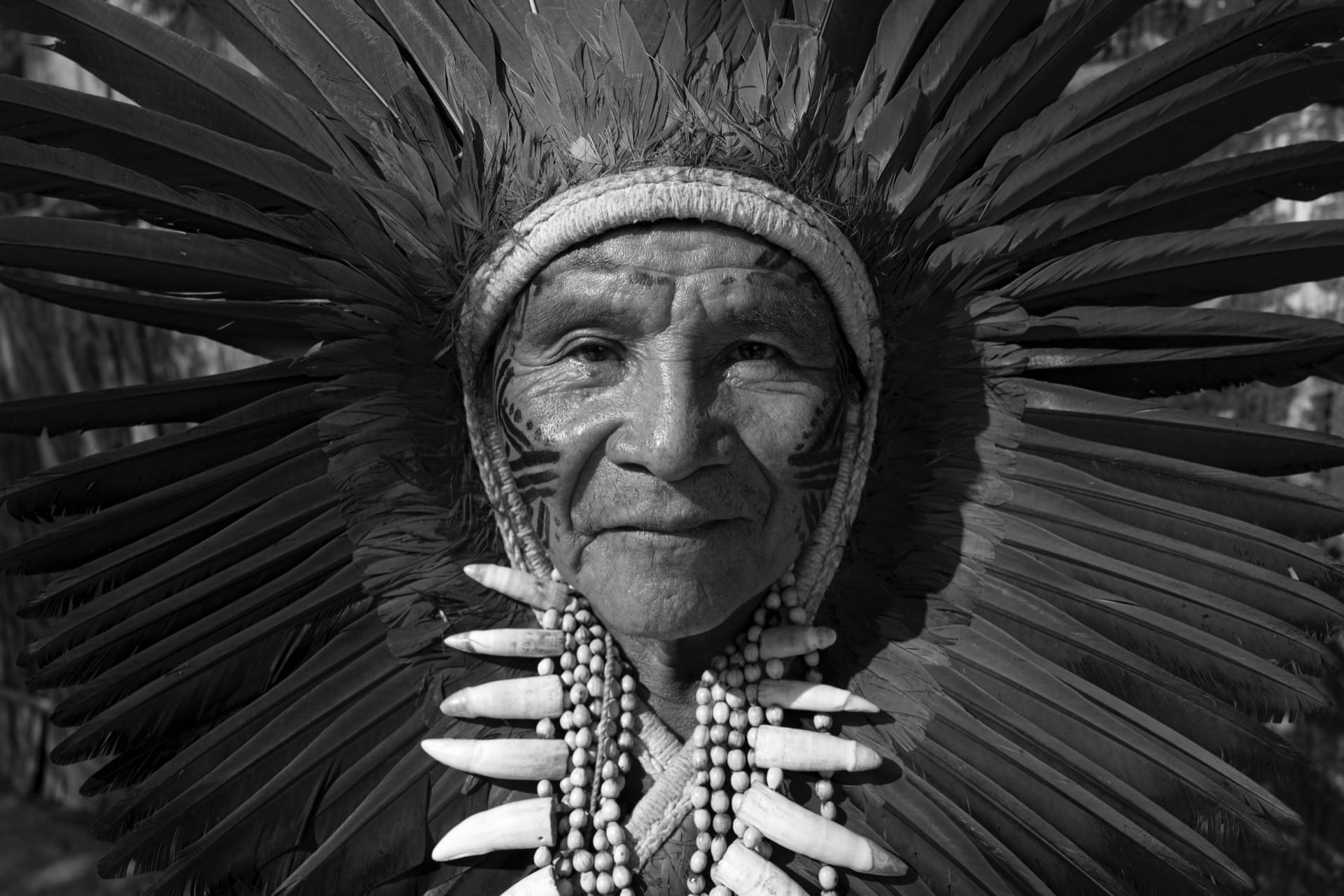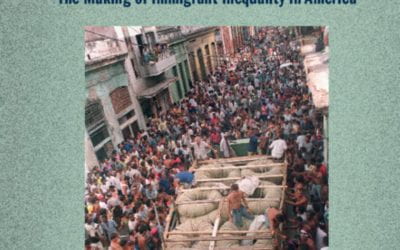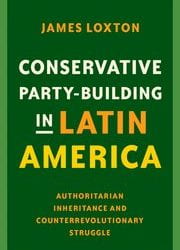Forbidden Embrace
Photographs by Alessandro Falco received an honorable mention in the digital exhibition, “Documenting the Impact of Covid-19 through Photography: Collective Isolation in Latin America,” sponsored by ReVista and the Art, Culture, and Film program at Harvard’s David Rockefeller Center for Latin American Studies (DRCLAS.)
The exhibition, based on an Open Call for Photography launched in July 2020, aims to create a critical visual record of our unprecedented times so they can be remembered by future generations.
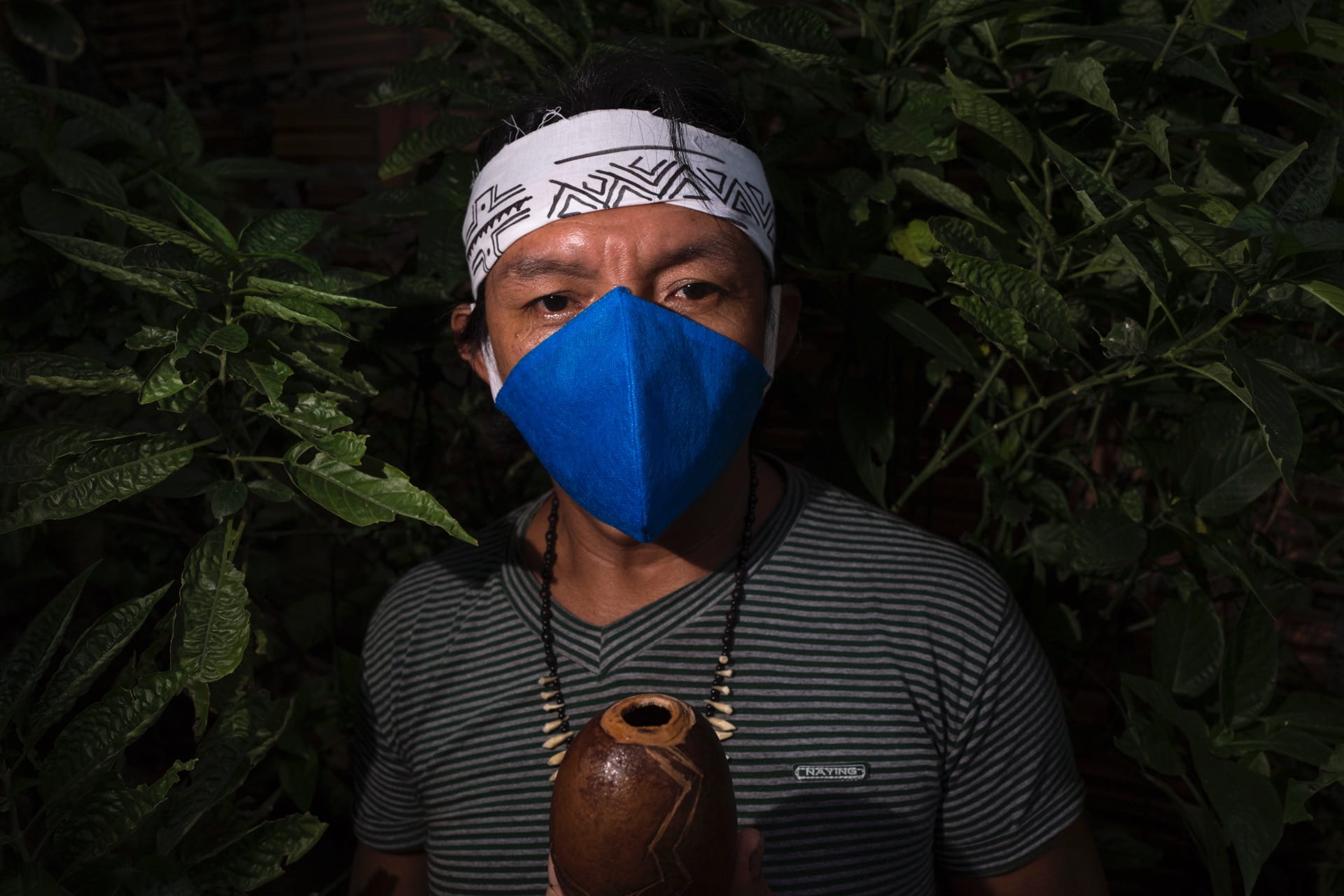
Diakara, 45, a shaman of the Dessana indigenous group, collects leaves of a medicinal plant on the outskirts of Manaus, the capital of Amazonas. He uses the plant, known as saratudo, to treat tribal members with symptoms of COVID-19. Hospitals and cemeteries in the city have been overwhelmed with victims of the pandemic. With the scarcity of medicines, many indigenous people living in Manaus have relied on traditional medicine to calm the symptoms of COVID-19. According to COIAB (Coordination of Indigenous Organizations of Brazilian Amazon), more than 2642 people from 72 tribes have contracted the new COVID-19, resulting in more than 218 deaths. Photo from “Documenting the Impact of Covid-19 through Photography: Collective Isolation in Latin America.”
In 2020, the pandemic crisis has hit the Brazilian Amazon hard.
Indigenous communities are particularly vulnerable to Covid-19 and its severe consequences, due to historical and socio-economic factors aggravated by the persistence of colonial practices in their native territories.
Those indigenous people who live in urban areas, mostly in precarious conditions, have found themselves as primary targets, vulnerable to contract the disease.
In more isolated communities, the transmission of severe acute respiratory syndrome has been introduced by infected health professionals and land invaders.
According to the Brazil’s Indigenous People Articulation, more than 40,340 Indigenous people have been infected with Covid-19, and 881 have died from the disease.
The death I have documented occured inside an informal settlement of 160 displaced Indigenous refugees from Venezuela, the Warao peoples, original inhabitants of Orinoco Delta now struggling to survive on the outskirts of Belém do Pará.
- Relatives mourn the death of José Alirio, 45, who died of Covid-19 a few hours ago in a room of a community of about 150 Warao Indigenous refugees in Outeiro, a district of Belem do Pará, Brazilian Amazon. This is the fifht death by COVID19 withing the Warao people of Belém in the past month, including three children. More than 461 indigenous died during the Coronavirus outbreak in Brazil. Photo from “Documenting the Impact of Covid-19 through Photography: Collective Isolation in Latin America.”
- A nurse checks the breathing of an indigenous patient, from Mura ethnic group, inside the new indigenous wing of the Nilton Nils Hospital, Manaus. The woman was transferred by air from Tabatinga, at the border with Colombia, and she’s in list for a place in the intensive care unit.
- Tapaiuna, 17, and Yará, 5, during the flu vaccination campaign sponsored by the Municipal health department in the Manaus area. The vaccination campaign of the population, including indigenous, has been promoted by Brazil’s Government in hopes of reducing pressure on Health Services.
The man’s body lies on the bare floor, next to his hammock; his head raised on a dog food sack.
Dozens of people were dangerously crowded in front of one of the small shacks, watching over the body of José Alirio, 45, through a window.
Alirio refused medical assistance and died of Covid-19 complications a few hours earlier, revealing the sincere fear of Waraos to be divided from their family and group.
In few minutes the situation degenerates, and the body disappears covered by mourning relatives while a funeral chant was intoned by Warao women.
For Warao peoples family boundaries and funeral rituals seems stronger than the fear of coronavirus, whose risks are not fully understood, and for this FAO is calling for governments actions to avoid communication breakdowns that may aggravate the spread of the disease.
Five members of this community have already died from Covid-19 in the past weeks, including three children.
- June 11, 2020 A portrait of Vanda Ortega Witoto , 33, an Indigenous Nursing Technician and volunteer for her community during the Coronavirus pandemic that hit badly her community in Parque das Tribos, an multi-group Indigenous community on the outskirts of Manaus, Brazilian Amazon. Since the onset of the COVID-19 epidemic, which has hit the poor community hard, Vanda has always been on the frontline to help hundreds of indigenous people who contracted the virus while pressuring the local Government to provide hospital support for the indigenous people of the state of Amazonas. In 2020, the pandemic crisis has hit hardly the Brazilian Amazon, exposing thousands of Indigenous peoples to the potentially deadly disease. Indigenous communities are particularly vulnerable to COVID-19 and its severe consequences, due to historical and socio-economic factors who are aggravated by the persistence of colonial practices in their native territories. According to the Brazil’s Indigenous People Articulation, more than 40340 Indigenous People have been infected with Covid-19, of which 881 have died from the disease.
- June 13, 2020 A portrait of Maria, 37, an indigenous woman from Mura group in domestic isolation after being diagnosed with COVID-19 in her home in Parque das Tribos, an informal settlement on the outskirts of Manaus, Brazil, where over 450 indigenous families lives together. The woman made her own protective mask with the words “Indigenous lives matter”. In 2020, the pandemic crisis has hit hardly the Brazilian Amazon, exposing thousands of Indigenous peoples to the potentially deadly disease. Indigenous communities are particularly vulnerable to COVID-19 and its severe consequences, due to historical and socio-economic factors who are aggravated by the persistence of colonial practices in their native territories. According to the Brazil’s Indigenous People Articulation, more than 40340 Indigenous People have been infected with Covid-19, of which 881 have died from the disease.
- June 3, 2020 Inside the mask factory of the Sateré Mawé Indigenous Women Association, on the outskirts of Manaus. Due to COVID-19 pandemic, they rapidly reconverted their production of indigenous handcraft production to start making masks with indigenous graphic elements, giving a part to deficient indigenous communities. The idea of indigenous graphic art came from the fact that for indigenous culture they represent a form of protection. In 2020, the pandemic crisis has hit hardly the Brazilian Amazon, exposing thousands of Indigenous peoples to the potentially deadly disease. Indigenous communities are particularly vulnerable to COVID-19 and its severe consequences, due to historical and socio-economic factors who are aggravated by the persistence of colonial practices in their native territories. According to the Brazil’s Indigenous People Articulation, more than 40340 Indigenous People have been infected with Covid-19, of which 881 have died from the disease.
- June 2, 2020 Inside a room in the indigenous area of the Nilton Nils hospital, recently inaugurated to cope with the high incidence of indigenous people affected by Coronavirus. In 2020, the pandemic crisis has hit hardly the Brazilian Amazon, exposing thousands of Indigenous peoples to the potentially deadly disease. Indigenous communities are particularly vulnerable to COVID-19 and its severe consequences, due to historical and socio-economic factors who are aggravated by the persistence of colonial practices in their native territories. According to the Brazil’s Indigenous People Articulation, more than 40340 Indigenous People have been infected with Covid-19, of which 881 have died from the disease.
- June 3, 2020 A shaman of the Dessana indigenous group collects leaves of a medicinal plant on the outskirts of Manaus, the capital of Amazonas. He uses the plant, known as saratudo, to treat tribal members with symptoms of COVID-19. Hospitals and cemeteries in the city have been overwhelmed with victims of the pandemic. In 2020, the pandemic crisis has hit hardly the Brazilian Amazon, exposing thousands of Indigenous peoples to the potentially deadly disease. Indigenous communities are particularly vulnerable to COVID-19 and its severe consequences, due to historical and socio-economic factors who are aggravated by the persistence of colonial practices in their native territories. According to the Brazil’s Indigenous People Articulation, more than 40340 Indigenous People have been infected with Covid-19, of which 881 have died from the disease.
- June 14, 2020 Dipó, 62, shaman of Tuyuka indigenous peoples, is seen dressed in traditional clothes after performing a ritual for tourists inside Yukuro village, a 40-minute boat ride from Manaus, Brazilian Amazon. According to the man, the group has just returned to propose this tour after being in solitary confinement for the past two months due to the Covid-19 pandemic, while surviving thanks to donations from a local tourism agency. Most of the tourists who reached the village were not using protective masks as recommended by the WHO, in days where the pandemic in Brazil continues to cause over 1000 daily deaths. In 2020, the pandemic crisis has hit hardly the Brazilian Amazon, exposing thousands of Indigenous peoples to the potentially deadly disease. Indigenous communities are particularly vulnerable to COVID-19 and its severe consequences, due to historical and socio-economic factors who are aggravated by the persistence of colonial practices in their native territories. According to the Brazil’s Indigenous People Articulation, more than 40340 Indigenous People have been infected with Covid-19, of which 881 have died from the disease.
Alessandro Falco is a photojournalist and documentary photographer whose research focuses primarily on environmental and humanitarian issues affecting the Amazon rainforest. In 2016, his article on a severe drought in Brazilian North East was showcased by United Nations at the 1st World Humanitarian Summit in Istanbul. Falco lives in Belem do Pará, the gateway to the Amazon river. www.alessandrofalco.com
Related Articles
A Review of Cuban Privilege: the Making of Immigrant Inequality in America by Susan Eckstein
If anyone had any doubts that Cubans were treated exceptionally well by the United States immigration and welfare authorities, relative to other immigrant groups and even relative to …
A Review of Conservative Party-Building in Latin America: Authoritarian Inheritance and Counterrevolutionary Struggle
James Loxton’s Conservative Party-Building in Latin America: Authoritarian Inheritance and Counterrevolutionary Struggle makes very important, original contributions to the study of…
Endnote – Eyes on COVID-19
Endnote A Continuing SagaIt’s not over yet. Covid (we’ll drop the -19 going forward) is still causing deaths and serious illness in Latin America and the Caribbean, as elsewhere. One out of every four Covid deaths in the world has taken place in Latin America,...

